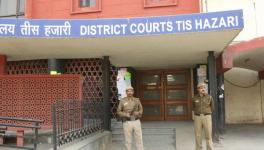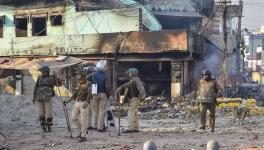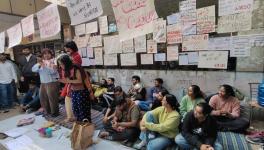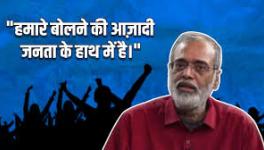Judiciary Must Keep Holding Untrammelled Regime to Account
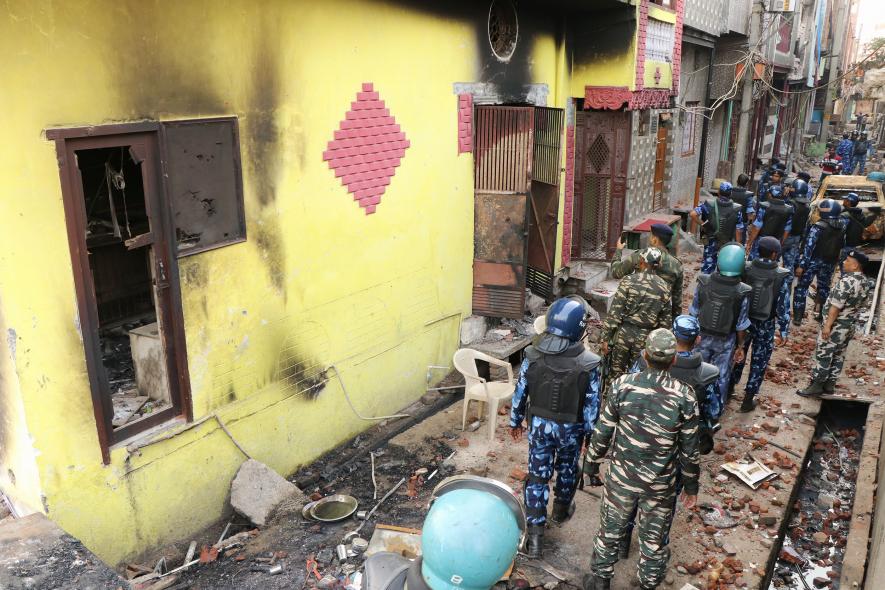
File Photo.
The Delhi Police has not exactly covered itself in glory ever since the Bharatiya Janata Party (BJP) came to power in 2014. But its record since 2019, when the Union Ministry for Home Affairs (MHA) was handed over to Amit Shah, it has come to resemble a shambolic militia more than an agency of the Indian state.
We shall record this egregious force’s many atrocities in a bit, but let us start with the unsparing criticism leveled at it by the judge of a Delhi court concerning its “investigations” into the riots that took place in north-east Delhi in the last week of February 2020. Additional Sessions Judge Vinod Yadav recently had two occasions to lament how the Delhi Police has gone about its business.
Early last week, the judge castigated the Delhi Police, saying its investigations into a particular riot-related case was “callous”, “inefficient” and “unproductive”. He was framing charges against a man named Rohit in a case relating to vandalism, looting and arson. Eventually, the court framed charges under at least five sections of the Indian Penal Code (IPC) relating to unlawful assembly, rioting, trespass and housebreaking, theft, mischief through arson and disobedience of an order issued by a public servant. An impressive array of charges, especially considering the police’s dilatory feet-dragging tactics.
The defence counsel argued that only his client had been charged, though the mob allegedly involved in the rioting consisted of 400-500 people. What does this submission tell us? That Rohit should be let off because a few hundred others were not being charged? Or that there has been a serial dereliction of duty by the Delhi Police on an industrial scale? Surely the latter.
Following these observations, presiding over another case later that week, Yadav passed more unflattering remarks against the Delhi Police. While framing charges against two accused, Ashraf Ali and Parvez Ali, the judge noted that it is “really painful” to see that the standard of the investigation was “very poor”. He also said that after filing “half-baked” chargesheets, “neither the investigating officer nor the SHO [station house officer] and the supervising officers bothered to see whether material was required to be collected from the appropriate authority and what steps were required to be taken to take the investigation to its logical end”. Consequently, the judge said, many accused persons, booked in numerous cases, had to languish in jail. It is hard not to conclude that this mode of investigation is purposeful rather than the outcome of plain sloth.
The judge noted that in a large number of cases pending before his court, investigating officers were not attending in person or through videoconferencing. He said he had “been given to understand” that the police had not even been briefing special public prosecutors. In other words, Delhi police officers were banging people up, carrying out some preliminary investigations, filing incomplete chargesheets and letting the accused rot in jail. One remedy for this, of course, is the grant of bail on a wide scale.
That, however, is not the point. The real issue is that Delhi Police is complicit in shredding its reputation to the point of irretrievability. In fact, beyond the point that would have made it recognisable as a bona fide “police force”, defined as a body of people sworn to uphold the law and contribute to the punishment of those who transgress it.
Let us get back to the Delhi riots. There is credible prima facie evidence that BJP leader Kapil Mishra, who lost in the 2020 Delhi Assembly election, lit the fuse and precipitated the Delhi riots, initially by threatening direct action if the police did not remove people peacefully protesting against the Citizenship (Amendment) Act, 2019. Yet, the Delhi Police never even pulled him in for questioning.
Instead, the public was treated to the spectacle of the police arresting disproportionately large numbers of young Muslim men. There is, of course, hardly a shadow of a doubt that the riots were instigated by members of the BJP and other outfits that are part of the Sangh Parivar. An overwhelming number of people who suffered in the riots were Muslims. They lost many more lives and properties, including homes, businesses and places of worship.
The investigations into the riots and the punitive actions undertaken in connection with them have, thus, amounted to systematic state-sponsored persecution of a minority community. In the Elgar Parishad-Bhima Koregaon case, the Pune police and the National Investigation Agency have been guilty of practically the same thing with respect to activists.
It is not the first time that the Delhi Police has been strictured in a court of law. In February this year, another additional sessions judge sharply rapped the force while granting bail to Disha Ravi, a climate activist from Bengaluru. She was “arrested”—a polite word to describe what amounted to abduction by the Delhi Police—in yet another trumped-up case probably stitched up to please its BJP masters.
The actions of the force in Jamia Millia Islamia and Jawaharlal Nehru University in December 2019 and January 2020 are more examples of the “fence eating the crop” to translate sayings prevalent in many Indian languages. The Delhi Police’s attack on the Jamia campus, involving, among other things, chasing students into a library and vandalising it, was especially egregious.
The subversion of law-enforcement agencies by the current regime has reached epidemic proportions. The central government has converted the Delhi Police and central agencies into extensions of the BJP machine. State governments run by the party have followed suit. The Uttar Pradesh government has been particularly assiduous in making sure that the police have lost all appearances of being an arm of the government, resembling more and more a private militia run by Chief Minister Adityanath.
The culture of impunity expressed in arbitrary arrests and detention, and in Uttar Pradesh, the recourse to encounter killings to ostensibly enforce the law, have undermined public life and dismantled citizens’ securities of life and liberty guaranteed by the Constitution and other legal codes. India has hurtled so far down the road of authoritarianism that it is either not recognised as a democracy any more or so designated only with qualifications.
That the judiciary—from the top court to the subordinate courts—is stepping in to curb the regime’s excesses, and the executive arms as a whole, is cause for cautious optimism. For, the BJP and its governments do not seem to acknowledge any restraints upon them. It is to be hoped that the movement toward transparency and accountability will broaden and quicken.
The writer is an independent journalist and researcher. The views are personal.
Get the latest reports & analysis with people's perspective on Protests, movements & deep analytical videos, discussions of the current affairs in your Telegram app. Subscribe to NewsClick's Telegram channel & get Real-Time updates on stories, as they get published on our website.













